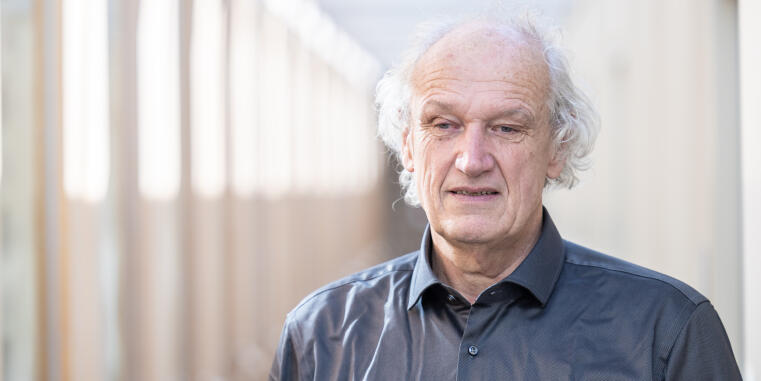

On 3 November 2025, Prof. Dr. Siegfried Saerberg gave his Fellow Lecture on the topic of “Der behinderte Zugang zu Kultur – Über Barrierefreiheit und mehr” (“Dis/abled Access to Culture Accessibility and more”):
Article 30 of the United Nations Convention on the Rights of Persons with Disabilities guarantees persons with disabilities unrestricted access to cultural goods. Despite widespread acceptance of inclusion and participation, however, these postulates are being implemented rather poorly in practice. Why is this the case?
In his lecture, Saerberg reflected on the invisible prerequisites for the reception of art and culture in museum contexts. These are linked to socio-culturally standardised concepts of bodies and cognition: museum activities refer to a normal body that presupposes a walking/standing, seeing and hearing standard body that also has a broad culturally and cognitively anchored store of knowledge. This in turn gives rise to countless sensory staging and linguistic description practices of cultural assets and their temporal, spatial and social arrangements. Viewed in this light, cultural assets are nothing less than an outstanding form of embodiment – if not reification – of what Fiona Kumari Campbell has called ‘ableism’.
As the unlabelled self and implicit in thought and body routines, this ableist knowledge is only too happy to elude the grasp of our awareness. On the one hand, this explains the high degree of persistence of this knowledge and, on the other hand, leads to the demand for extensive target group participation in museum activities through practical, process-oriented reasoning.
Against this backdrop, Saerberg focused on some of the exhibitions he has curated, such as Art Blind 2013 and Nahaufnahmen 2014, as well as projects he has supported at the Bundeskunsthalle from 2015 to 2017, in which quasi-technical moments of barrier-free design were linked to valuable moments of participation by potential and actual groups of actors. Finally, he attempted to imagine a digital heterotopia in Foucault's sense, in which access as a common cultural asset takes place in a multifaceted translation process. Can digitalisation also lead to a change in those long-established practices of the body and mind, or is ableism merely replicated in a digital form?
Prof. Dr. Siegfried Saerberg works on topics related to disability studies, participation and inclusion research, disability arts, sensory ethnography, and digitality and disability. From 2020 to 2025, he held the professorship for Disability Studies at the Protestant University of Applied Sciences for Social Work and Diaconia, Rauhes Haus, in Hamburg. In the winter semester of 2025/26, he is Senior Fellow of the Centre for Advanced Study “Access to Cultural Goods in Digital Change”.

